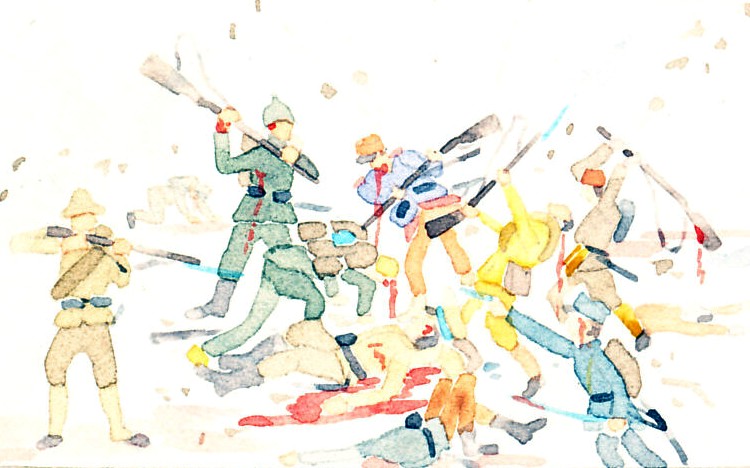A mass of German troops bear an enormous egg striped in the black, white, and red of the german flag. Atop the egg, a cannon is fired by troops with a Hungarian flag. The target, diminutive in the distance, is Paris, Eiffel Tower gray against the brown city.
The watercolor is labeled,
Husvét . Páris piros tojása . 1918
Easter . Red eggs for Paris . 1918
The front of the card is postmarked 1918-04-05 from Melököveso.
The card is a Feldpostkarte, a field postcard, from Asbach Uralt, old German cognac. Above the brand name, two German soldiers wheel a field stove past a crate containing a bottle of the brandy under the title Gute Verpflegung, Good Food. Above the addressee is written Einschreiben, enroll, and Nach Ungarn, to Hungary. The card is addressed to Franz Moritos, and is postmarked Hamburg, 1918-03-30. A Hamburg stamp also decorates the card.
A hand-painted postcard by Schima Martos. , Germany on registered fieldpost card, 1918, message: Red Egg for Paris, Easter, 1918.
The German advance in Operation Michael in the March, 1918 nearly broke the Allied line, and threatened Paris, putting it once again in range of a new German supergun capable of hitting the city from 70 miles away.

Husvét . Páris piros tojása . 1918
Easter . Red eggs for Paris . 1918
The front of the card is postmarked 1918-04-05 from Melököveso
Other views:
Larger, Larger, Back
